
Interviews with People Inspired by Oz
Hosted by The Daily Ozmapolitan

The Real Wizard of Oz
A Conversation with Rebecca Loncraine
Rebecca Loncraine is the author of the first literary biography of L. Frank Baum. Rebecca traveled around the United States to see the places where Baum lived and how the times he lived in influenced his writings. What makes this book especially interesting is that Rebecca is from Wales. I recently asked her how Oz made it's way to a country almost 4000 miles away from where Baum penned his stories...
WW: How do people on the "other side of the pond" view the great Americanfairy tale?
RL: People in the UK love Oz and although many British people don’t know very much at all about Baum, they have a deep knowledge of Oz; I see references to it everywhere in the UK, so it seems to have penetrated British culture and our collective psyche as well as America’s.
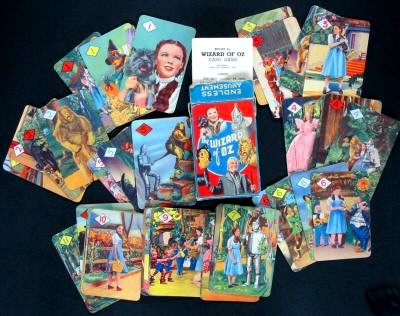
WW: Growing up in Wales, what was your exposure to Oz in the UK?
RL: The Wizard of Oz, both Baum’s book and the MGM movie, are fantastically popular in the UK, although I didn’t read Baum’s subsequent Oz books until later in life. I really enjoyed them.
WW: If Baum had not written The Wizard of Oz, but had instead continued inthe vein of A New Wonderland and Mother Goose in Prose, what would havehappened (or not) to American children's literature? Would someone elsehave come along to write their version of the Great American Fairy Tale?
WW:
Did you do any investigation into
the numerous books that were published in order to cash in on the
success of TWWOO? Books like Eva Katherine Gibson's "Zauberlinda", or
Alexander Volkov's "The Wizard of the Emerald City".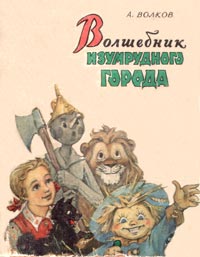
WW: How many of Baum's non-Oz books have you read? How do you feel they stand up in the field of children's literature?
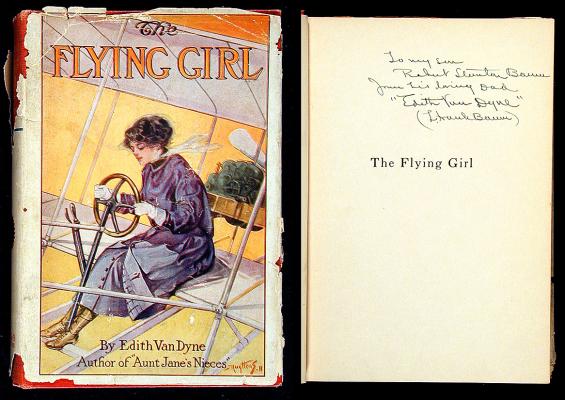 RL: A
summer spent in the Butler library at Columbia University gave me the
opportunity to look through their collection of Baum’s non-Oz writing.
I particularly enjoyed his two Flying Girl books, but I think his heart
was always in Oz.
RL: A
summer spent in the Butler library at Columbia University gave me the
opportunity to look through their collection of Baum’s non-Oz writing.
I particularly enjoyed his two Flying Girl books, but I think his heart
was always in Oz.
WW: What inspired you to write a biography of L. Frank Baum?
WW: What places did you visit while doing your research? Were you able tofind anything that was previously unknown?
 I went storm
chasing with some professional chasers to get up close to the unique
Plains weather that inspired the tornado of Oz. I think I found out
lots of extremely interesting contextual material during my research
that shaped Baum’s life and imagination in ways that perhaps hadn’t
been made visible before. Also, my perspective as a British writer has,
I think, given me an outsider’s view that I hope readers will find
refreshing.
I went storm
chasing with some professional chasers to get up close to the unique
Plains weather that inspired the tornado of Oz. I think I found out
lots of extremely interesting contextual material during my research
that shaped Baum’s life and imagination in ways that perhaps hadn’t
been made visible before. Also, my perspective as a British writer has,
I think, given me an outsider’s view that I hope readers will find
refreshing.
WW: Were you surprised to discover the amount of misinformation about Baum?The story about him writing in a birdcage, or that he was a racist dueto his one editorial about Native Americans in the Saturday Pioneer?
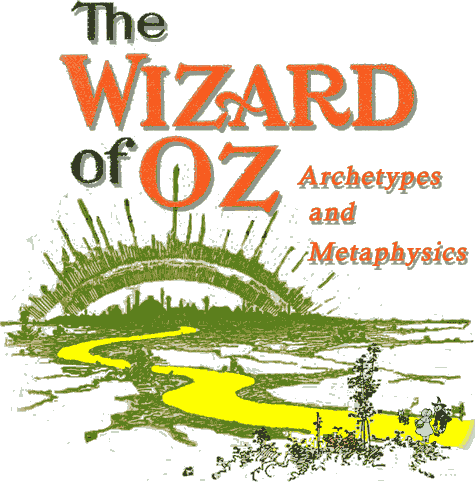 WW: Some
people have theorized that Baum used
his Theosophical beliefs topromote
an agenda in his works. What are your thoughts on this?
WW: Some
people have theorized that Baum used
his Theosophical beliefs topromote
an agenda in his works. What are your thoughts on this?
WW: Talk a bit about Baum's unusually forward
thinking ideas about women'srights.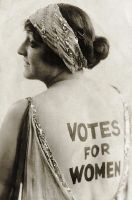
WW: Do you think that Baum was a man of his
time, or a man ahead of histime?
Why?
Baum grappled with new
technologies - electricity, cinema, photography, the automobile, mass
produced machines of many kinds, and he fully felt the ambiguities of
these novelties - the loss of intimate daily proximity to horses, the
fear that machines might take over and make the human body and mind
redundant. But he was also extremely excited about new technologies and
wanted to celebrate them.
He knew that women deserved equal rights with men, but I think he also feared the rise of female power slightly, and worried that the New Woman might overpower men. He was divided over many issues of his times, including the role and rights of Native Americans, and the appalling treatment the tribes received at the hands of white settlers. Baum's inner tensions, which surfaced in his writing, make him an honest barometer of his times.
WW: Do you feel that any particular events in
Baum's life led him to be
such an entrepreneur? After all, he was from fairly well to dofamily and suffered from poor health? What
drove him to keep trying newthings?
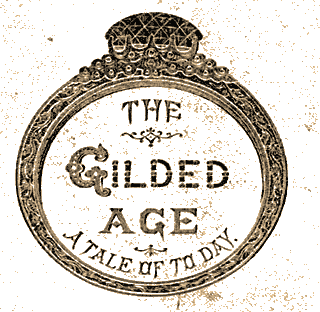
WW:
Will
you be doing any signings or publicity for the book?
RL: In the near future
I plan to make it over to the US to meet readers and do signings, but
probably not this year. All the details for my future plans are
available on my website which is www.rebeccaloncraine.com.
I also have a mailing list which people can sign on to if they want to
know when I will be coming over to the US. ∆
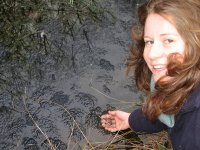 Rebecca Loncraine
lives in the United Kingdom and has been in love with Oz since she was
a little girl. She has a Doctorate from Oxford University and writes regularly for the British press,
including the Independent, the Guardian, and the
Times Literary Supplement. "The Real Wizard of
Oz: The Life and Times of L. Frank Baum" will be released on August 20,
2009. She can be reached
at rebeccaloncraine.com
Rebecca Loncraine
lives in the United Kingdom and has been in love with Oz since she was
a little girl. She has a Doctorate from Oxford University and writes regularly for the British press,
including the Independent, the Guardian, and the
Times Literary Supplement. "The Real Wizard of
Oz: The Life and Times of L. Frank Baum" will be released on August 20,
2009. She can be reached
at rebeccaloncraine.com
Blair Frodelius lives in upstate New York and is the
editor of The International Wizard of Oz Club's Electronic newsletter,
The Ozmapolitan Express; The Daily
Ozmapolitan; and OzProject.egtech.net. He can be reached at
blair@frodelius.com
Home Again

